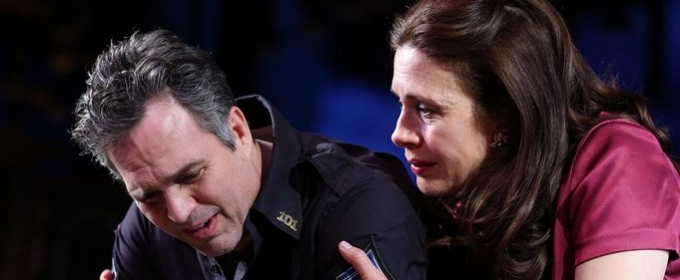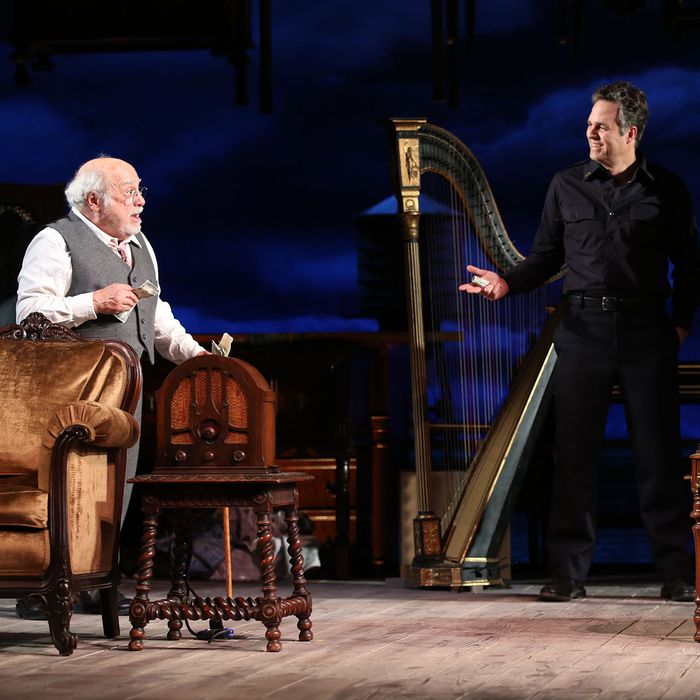The Price Arthur Miller Script



Arthur Miller The Price Summary
Feb 10, 2005 Personal Background. Arthur Miller was born in Harlem on October 17, 1915, the son of Polish immigrants, Isidore and Augusta Miller. Miller's father had established a successful clothing store upon coming to America, so the family enjoyed wealth; however, this prosperity ended with the Wall Street Crash of 1929. Victor Franz is a police sergeant approaching fifty and the end of his career. His father died several years ago but the family home is about to be torn down and Victor must get rid of the furniture and dusty antiques stored in the attic of a Manhattan brownstone building. Victor's wife, Esther, hopes to get enough cash from the family treasures to take a much-needed vacation, and allow Victor to retire from a job he has been stuck in for years. The Price is a 1968 play by Arthur Miller. It is about family dynamics, the price of furniture and the price of one's decisions. Years after an angry breakup, Victor and Walter Franz are reunited by the death of their father.
The Price Arthur Miller Pdf

| by Arthur Miller
▼Members
▼Tags ▼LibraryThing Recommendations None Sign up for LibraryThing to find out whether you'll like this book. No current Talk conversations about this book. Showing 3 of 3 The price or the value--what is most important to learn. The play occurs as one son who has given up his dreams to be a scientist stays home, resentfully, to take care of his father while his brother becomes a successful surgeon on the other coast. After the death of the father, Victor decides to sell the furniture and an 89year old dealer Gregory Solomon played by David Suchet arrives. Brendan Coyle (Mr. Bates in Downton) plays the successful son (but he was not on stage when I saw it in April with the Shakespeare Tour group) but he arrives just as the deal is about to be completed. Suchet's role makes the play! ( ) flashflood42 | Jun 14, 2019 | Is it still a spoiler alert when the book is 50 years old? Spoiler Alert! I can’t comprehend why the average rating for this play is so low! This is easily a solid four star or higher if the reader is good with visualization and even higher when viewed if this play is properly produced and acted with all the antiques on stage. Set in “Today” which is roughly 1968 as the play was published then, two brothers meet again after being estranged for 16 years, when their father died. Their family’s old building (now owned by their uncle) is being demolished, and the fifty-year-old younger brother Victor is arranging to have their parents’ old furniture and belongings sold. The stage is filled with luxurious items of the bygone Roaring 20’s. Act One addresses primarily the wheeling and dealing between Victor, a straight-shooter policeman, who just wants to know “The Price” that the antique/furniture dealer, Solomon, is willing to offer him. Solomon, at age 89, is negotiating to maximize this last score as his final hurrah. Much of Victor and his wife Esther’s present situation is revealed. Act One ends with the older brother, Walter, a successful surgeon walking in as Solomon was handing over the money after having finalized on the Price. Act Two focuses on the baggage of the family history, with Victor and Walter revealing the weighty past, traumatized by the Great Depression. The helpless Solomon tries to savage his deal; Esther attempts to dampen the deep anger that Victor carries toward Walter while securing the best financial outcome for her family. The conclusion is unknown until the last moments – regarding both the relationship of the brothers and the deal of the family relics. I suspect some of the low ratings is driven by the ending which in these types of plays is often debatable. I for one think it’s legitimate. In this formidable play that covered a mere hour or two, Miller addressed multiple themes that remain relevant even today, 50 years later. Life Decisions and the Sandwich Generation: This topic is the crux of the story. The family wealth has collapsed. Walter was hell bent on finishing his medical degree, “come hell or highwater”. Victor pitied father, leaving college, to join the police force supporting father and his young family, always sacrificing in favor of father along the way. Victor feels Walter abandoned the family, but turns out Walter knew more about father that he couldn’t say then, resulting in brother against brother, with the surprising agitator being the father. The Great Depression and its demoralizing effects: The father was humiliated after losing it all, never leaving the house, not taking inferior job, not taking welfare either – the curse of pride. The paralyzing effects of a ‘lifetime’ failure can leave a person to live a frozen life, as the father did, and even worse alienating his sons from each and other, just to protect himself. Aging: As much as the 89-year-old dealer wants that last amazing transaction, what he wanted more is to be relevant, to have a reason to get out of bed, to have something to do. Securing the deal represented more than the opportunity of money, it was his identity at stake. Career and Climbing the Ladder: Walter, in his quest to be the best, sacrificed aspects of his life. Possibly, he is compensating his family’s financial failures without realizing his choices. “…You start out wanting to be the best, and there’s no question that you do need a certain fanaticism; there’s so much to know and so little time. Until you’ve eliminated everything extraneous – he smiles – including people… You become an instrument, an instrument that cuts money out of people, or fame out of the world. And it finally makes you stupid. Power can do that…” Material Goods: The luxurious furniture is no longer wanted by the kids, not befitting the ‘current’ lifestyle. I was surprised to read what I view as the current Ikea lifestyle was already in place 50 years ago. “There is a rich heaviness, something almost Germanic, about the furniture, a weight of time upon the bulging fronts and curving chests marshalled against the walls. The room is monstrously crowded and dens, and it is difficult to decide if the stuff is impressive or merely over-heavy and ugly.” Retail Therapy: The world has become more materialistic over the years. These words are spot-on. “What is the key word today? Disposable. The more you can throw it away the more it’s beautiful. The car, the furniture, the wife, the children – everything has to be disposable. Because you see the main thing today is – shopping. Years ago a person, he was unhappy, didn’t know what to do with himself – he’d go to church, start a revolution – something. Today you’re unhappy? Can’t figure it out? What is the salvation? Go shopping.” ( ) varwenea | Aug 21, 2018 | This play was well written and is interesting to read to find out what was the siblings' grudges and rivalry. Each had their own and different perception of their father especially after their fathers downfall during the Great Depression. One brother strove to become a successful doctor and the other put aside his dream in science and became a policeman and took care of his father. Was this a case of morality or conscience? This question and the choices and perceptions of each brother can serve as a classroom discussion and lesson. ( ) lvelazqu2000 | May 21, 2008 | Showing 3 of 3 ▼Published reviews Is contained inBest American Plays: 7th Series, 1967-1973 by Clive Barnes Collected Plays by Arthur Miller(indirect) Miller Plays 2: The Misfits / After the Fall / Incident at Vichy / The Price / The Creation of the World and Other Business / Playing for Time by Arthur Miller ▼Common Knowledge
References to this work on external resources. Wikipedia in EnglishNone 'Arthur Miller's deeply moving drama reunites two long estranged middle - aged brothers. Nostalgia and recrimination erupt as they sell of an attic full of furniture, their last link to a family and a world that no longer exist.' -- container. No library descriptions found. ▼LibraryThing members' description
|
Audible(0 editions) Project Gutenberg(0 editions) Swap(2 have, 1 want) Popular coversRatingAverage:
| |||||||||||||||||||||||||||||||||||||||||||||||||||||||||||